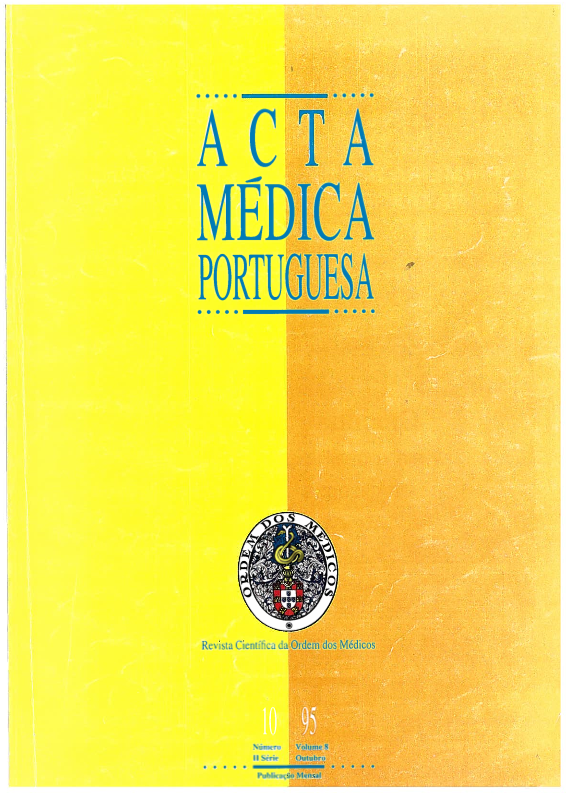Percurso assistencial de doentes oncológicos internados num hospital central.
DOI:
https://doi.org/10.20344/amp.2750Resumo
Prevention and early diagnosis are considered the main tools to reduce the incidence and mortality from cancer. The authors studied prospectively 150 oncologic patients admitted to Santa Maria Hospital-Lisbon from April/92 to April/93, by personal interview, to analyze their assistance pathways from the appearance of first symptoms. We tried to define the role of the different medical assistance structures and the most important factors conditioning delay in diagnosis and therapeutics. The results show that primary care physicians were the first medical assistance in 56% of patients; 22% of the patients went to the Emergency Service of the Hospital for the first time. Duration of symptoms was less then 3 months in 74% of the population studied. Primary care physicians diagnosed neoplasia in 32% of the cases and prescribed symptomatic treatment in another 41%. The Emergency Service was the most efficient in diagnosis, providing rapid orientation in 91% of patients. In this population, 43% had their residence more than 30 km from Lisbon. Median age was less than 60 years. These results emphasize the fundamental role of Primary Care Physicians in the initial management of cancer patients and their responsibility in early diagnosis. They also suggest the need for the promotion of graduate education and courses designed for primary care physicians and the population.Downloads
Downloads
Como Citar
Edição
Secção
Licença
Todos os artigos publicados na AMP são de acesso aberto e cumprem os requisitos das agências de financiamento ou instituições académicas. Relativamente à utilização por terceiros a AMP rege-se pelos termos da licença Creative Commons ‘Atribuição – Uso Não-Comercial – (CC-BY-NC)’.
É da responsabilidade do autor obter permissão para reproduzir figuras, tabelas, etc., de outras publicações. Após a aceitação de um artigo, os autores serão convidados a preencher uma “Declaração de Responsabilidade Autoral e Partilha de Direitos de Autor “(http://www.actamedicaportuguesa.com/info/AMP-NormasPublicacao.pdf) e a “Declaração de Potenciais Conflitos de Interesse” (http://www.icmje.org/conflicts-of-interest) do ICMJE. Será enviado um e-mail ao autor correspondente, confirmando a receção do manuscrito.
Após a publicação, os autores ficam autorizados a disponibilizar os seus artigos em repositórios das suas instituições de origem, desde que mencionem sempre onde foram publicados e de acordo com a licença Creative Commons









